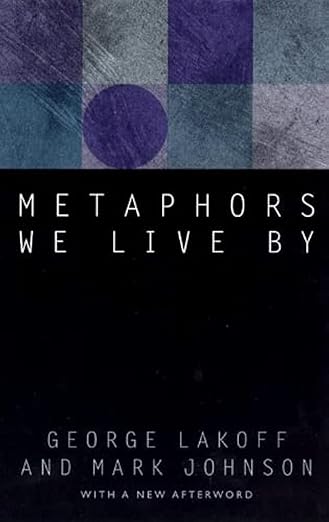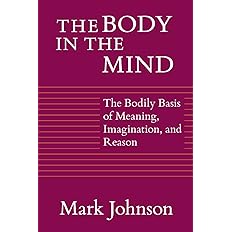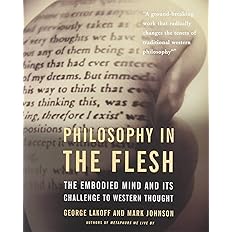Understanding Our Own Minds: Cognitive Linguistics 🔬
Welcome to the philosophical revolution. Since the 1980 publication of Metaphors We Live By, this field, particularly Conceptual Metaphor Theory (CMT), has deeply explained human cognition and language. For this reason, it offers profound insights into long-standing philosophical problems too, addressing issues such as:
- The Failure of Descartes' Mind-Body Dualism
- The Relationship Between Imagination and Reason
- Objectivity and Truth
- Second Language Acquisition (Krashen's Comprehensible Input Hypothesis)

"a new era begins"
Begin Your Journey into Cognitive Linguistics Here.
Start here on your Cognitive Linguistic journey! Presents the groundbreaking foundation of Conceptual Metaphor Theory, revealing how everyday metaphors structure our very cognition. Packed with vivid language examples, guided exercises for uncovering hidden metaphors in conversations and texts, and practical insights for applying metaphor analysis in language learning and anthropological research.
Target Audience:
General Audience, Students, Linguists, Anthropologists.
Notes:
Essential reading for understanding conceptual metaphor theory.
Quotations:
"This book could be considered to be one of the most intellectually honest of any book in print, for it unashamedly deals with commonsense notions of how the human mind deals with the world."
How does the mind work? Features practical analyses of language and culture. Introduces image-schema theory by showing how everyday bodily experiences—like balance, containment, and force—shape our conceptual networks.
Target Audience:
Philosophers, Linguists, Anthropologists, Cognitive Scientists.
Notes:
Explores the role of image schemas in shaping thought.
Quotations:
"Mind-blowing!"
"A very important book."
Explores how metaphors drive creativity and social structures across politics, literature, and kinship systems. Offers real-world case studies and hands-on activities for mapping conceptual metaphors in cultural practices, providing ready-to-use frameworks for ethnographic and anthropological research.
Target Audience:
Linguists, Literary Scholars, Anthropologists.
Notes:
Examines the creative power of metaphor in language and culture.
Applies the metaphor revolution to core philosophical topics, demonstrating how concepts of truth, morality, and knowledge are grounded in bodily experience. Includes illustrative case studies from historical texts and discussion prompts for applying embodied analysis to classic and contemporary philosophy.
Target Audience:
Academics, Philosophy Students, Cognitive Scientists.
Notes:
Recommended for academics, comprehensive analysis of embodied cognition in philosophy.
A foundational text in embodied cognitive science.
Target Audience:
Cognitive Scientists, Philosophers, Psychologists.
Notes:
A foundational text in embodied cognitive science.
Quotations:
"Embodied cognition is one of the most interesting and useful areas within cognitive science at this time (along with placebo research and positive psychology)--and The Embodied Mind is one of the best books to read for the fullest appreciation of the philosophy and approach of this exciting branch of psychology."
"An immensely important book on the Western Tradition."
Lakoff challenges traditional views of categorization, arguing that categories are not simply objective containers but are shaped by our bodies, brains, and cultures. He explores how prototype theory, radial categories, and conceptual metaphors influence our understanding of the world.
Target Audience:
Linguists, Cognitive Scientists, Anthropologists.
Notes:
Introduces prototype theory and its implications for categorization.





